Gardener Freezywater: Your Ultimate Guide to Thriving Gardens
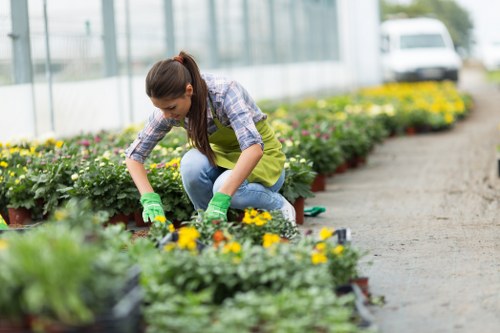
Gardening in Freezywater offers a unique blend of challenges and rewards for both novice and experienced gardeners. The area's climate, soil conditions, and local flora necessitate specific techniques to ensure a flourishing garden. Whether you're aiming to cultivate vibrant flowers, robust vegetables, or lush greenery, understanding the local environment is key to your gardening success.
One of the first steps in creating a thriving garden in Freezywater is assessing the soil quality. The region's soil composition can vary, so testing your soil's pH level and nutrient content is essential. This information will guide you in selecting the right fertilizers and amendments to enhance soil fertility. Incorporating organic matter, such as compost or well-rotted manure, can significantly improve soil structure and drainage.
Another critical factor is understanding the local climate. Freezywater experiences a temperate climate with distinct seasonal changes, which influences planting schedules and plant selection. Choosing plants that are well-suited to the local weather patterns will increase your garden's resilience against pests, diseases, and extreme weather conditions.
The Ideal Plants for Freezywater Gardens
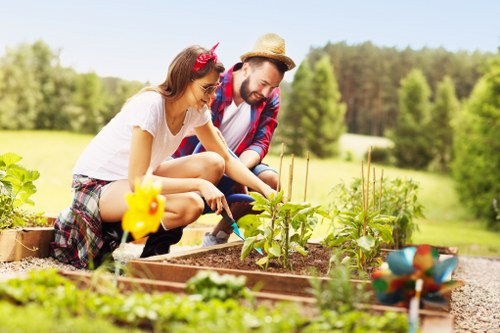
Selecting the right plants is crucial for a successful garden in Freezywater. Opt for species that thrive in the local climate and soil conditions. Some popular choices include:
- Lavender: Known for its hardiness and fragrant blooms, lavender is perfect for adding color and scent to your garden.
- Tomatoes: With the right care, tomatoes can flourish in Freezywater's summer heat, providing a bountiful harvest.
- Hostas: These shade-tolerant plants are ideal for areas of your garden that receive less sunlight.
- Roses: Classic and versatile, roses can add elegance and beauty to any garden space.
- Herbs: Basil, rosemary, and thyme are excellent choices for both culinary use and ornamental purposes.
Incorporating a mix of perennials and annuals can ensure year-round interest and continuous blooming. Additionally, native plants are often more resistant to local pests and diseases, reducing the need for chemical interventions.
Proper plant spacing and arrangement are also important. Giving each plant enough room to grow ensures adequate air circulation, which can prevent fungal diseases and promote healthy growth.
Essential Gardening Tools and Equipment
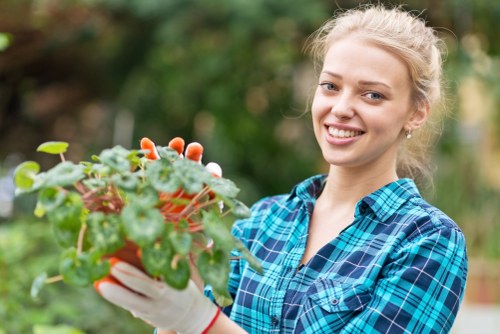
Having the right tools can make gardening tasks easier and more efficient. Essential gardening tools for Freezywater gardeners include:
- Spade and Shovel: For digging and turning soil.
- Pruners: Essential for trimming and shaping plants.
- Garden Fork: Useful for aerating the soil and removing weeds.
- Watering Can or Hose: Ensures plants receive adequate moisture.
- Gloves: Protect your hands from thorns, dirt, and potential allergens.
Investing in high-quality tools will not only improve your gardening efficiency but also prolong the lifespan of your equipment. Regular maintenance, such as cleaning and sharpening blades, can keep your tools in optimal condition.
In addition to basic tools, consider investing in garden accessories like soil testers, compost bins, and raised garden beds. These can enhance your gardening experience and help you manage your garden more effectively.
Seasonal Gardening Tips for Freezywater
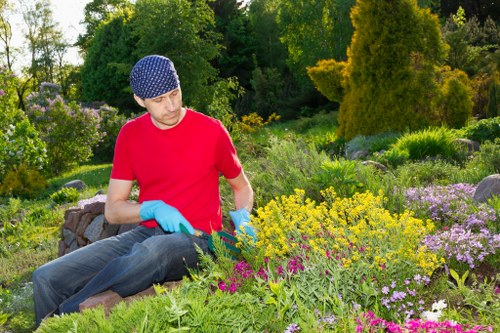
Gardening is a year-round activity, and each season in Freezywater brings its own set of tasks and opportunities. Here are some seasonal tips to help you maintain a healthy garden throughout the year:
Spring
Spring is the time for planting new seeds and preparing your garden for the growing season. Start by clearing any debris from the winter months and amending the soil with compost. Plant early spring vegetables like peas, lettuce, and radishes, and sow perennial flowers that will bloom throughout the summer.
Summer
During the summer, focus on watering and mulching to retain soil moisture and suppress weeds. Regularly deadhead spent flowers to encourage new blooms and monitor your plants for signs of pests and diseases. This is also the ideal time to harvest vegetables and enjoy the fruits of your labor.
Autumn
Autumn is the season for planting bulbs that will bloom in the spring and preparing your garden for the colder months. Clear fallen leaves and incorporate them into the compost. Plant hardy shrubs and perennials that can withstand frost and provide structure to your garden during the winter.
Winter
In winter, focus on planning and maintenance. Prune trees and shrubs, repair garden structures, and order seeds for the upcoming spring. Protect tender plants from frost by covering them with mulch or frost cloths, and use this time to reflect on what worked well in your garden and what could be improved.
Watering and Irrigation Strategies
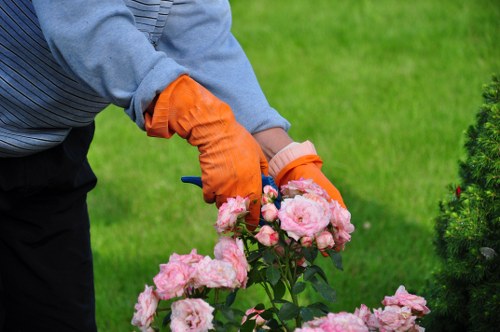
Effective watering is critical for a healthy garden. In Freezywater's climate, it's important to adapt your watering schedule to the seasonal changes. Here are some strategies to optimize water usage:
- Deep Watering: Water deeply and less frequently to encourage strong root growth. Shallow watering can lead to weak roots and increased susceptibility to drought.
- Morning Watering: Watering in the early morning reduces evaporation and allows plants to absorb moisture before the heat of the day.
- Mulching: Apply a layer of mulch around your plants to retain soil moisture, regulate soil temperature, and suppress weed growth.
- Drip Irrigation: Installing a drip irrigation system can provide precise watering directly to the plant roots, minimizing water waste and reducing the risk of foliage diseases.
- Rainwater Harvesting: Collecting rainwater in barrels is an eco-friendly way to water your garden and reduce reliance on municipal water sources.
Regularly check the moisture levels of your soil to ensure your plants are receiving adequate hydration. Adjust your watering practices based on weather conditions, such as heavy rains or droughts, to maintain optimal soil moisture.
Proper irrigation not only supports plant health but also conserves water, making your gardening practices more sustainable and environmentally friendly.
Soil Health and Fertility
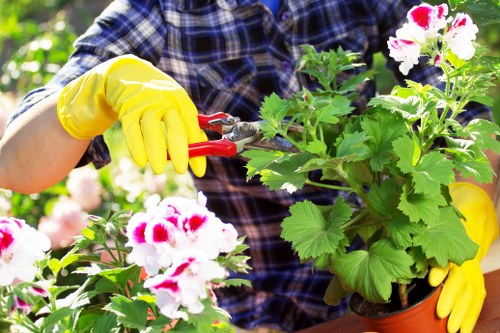
Maintaining healthy soil is the foundation of a productive garden. In Freezywater, enhancing soil fertility involves a combination of natural practices and appropriate amendments.
Start by performing a soil test to determine the pH level and nutrient content. Most plants prefer a slightly acidic to neutral pH, but some may require specific conditions. Based on the test results, you can adjust the soil pH by adding lime to raise it or sulfur to lower it.
Incorporate organic matter into your soil to improve its structure and fertility. Compost, manure, and leaf mold are excellent sources of nutrients that enrich the soil and promote beneficial microbial activity. Organic matter also enhances soil aeration and drainage, preventing waterlogging and root diseases.
Rotate your crops each season to prevent soil depletion and reduce the buildup of pests and diseases. Leguminous plants, such as beans and peas, can naturally fix nitrogen in the soil, improving fertility for subsequent plantings.
Consider using green manures or cover crops during the off-season to protect the soil from erosion, suppress weeds, and add organic matter. These practices contribute to long-term soil health and sustainability.
Regularly mulching your garden beds helps maintain soil moisture, regulate temperature, and reduce weed growth. Choose organic mulches like straw, wood chips, or grass clippings, which decompose over time and add nutrients to the soil.
Pest and Disease Management
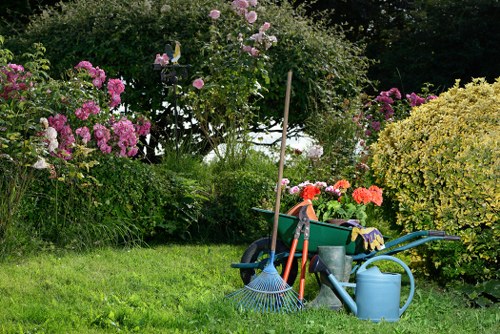
Protecting your garden from pests and diseases is essential for maintaining plant health and productivity. In Freezywater, a combination of preventative measures and natural remedies can effectively manage common garden challenges.
Start by practicing good garden hygiene. Remove dead or diseased plant material, and keep the garden free of debris that can harbor pests. Regularly inspect your plants for signs of damage or infestation, and take immediate action when issues are detected.
Encourage beneficial insects, such as ladybugs and predatory beetles, which naturally control pest populations. Planting a variety of flowers and herbs can attract these helpful insects to your garden.
Use organic pest control methods, such as neem oil, insecticidal soaps, or homemade sprays, to target specific pests without harming beneficial organisms. Additionally, introducing physical barriers like row covers or netting can prevent pests from reaching your plants.
Rotate your crops to disrupt pest life cycles and reduce the likelihood of infestations. Avoid planting the same family of plants in the same location year after year, as this can lead to the buildup of pests and diseases.
When dealing with diseases, ensure proper plant spacing and ventilation to minimize the risk of fungal infections. Selecting disease-resistant plant varieties can also provide an added layer of protection.
Gardening Sustainability Practices
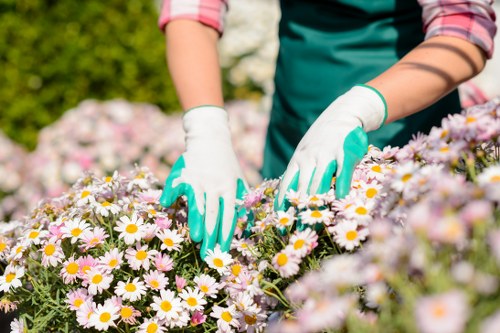
Embracing sustainable gardening practices not only benefits the environment but also enhances the health and longevity of your garden. Here are some sustainable strategies for gardeners in Freezywater:
- Composting: Recycling kitchen scraps and garden waste into compost enriches the soil and reduces landfill waste.
- Water Conservation: Implementing efficient watering techniques, such as drip irrigation and rainwater harvesting, conserves water and ensures your garden remains hydrated.
- Native Plants: Incorporating native plant species supports local biodiversity and requires less maintenance and resources.
- Organic Fertilizers: Using organic fertilizers avoids the harmful effects of synthetic chemicals and promotes natural soil fertility.
- Biodiversity: Creating a diverse garden habitat attracts beneficial wildlife and creates a balanced ecosystem.
By prioritizing sustainability, you contribute to the health of the local environment and create a garden that can thrive for generations to come.
Additionally, reducing chemical usage and embracing natural methods can lead to a safer and more enjoyable gardening experience.
Community and Gardening in Freezywater
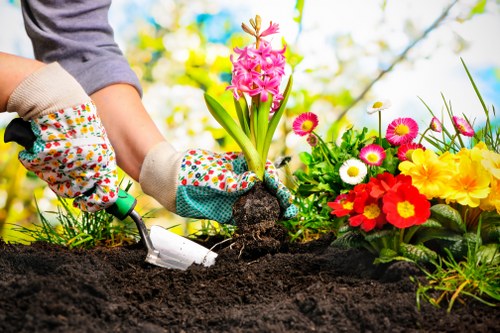
Gardening in Freezywater is not just an individual pursuit but also a community-centric activity. Engaging with local gardening groups and participating in community events can enhance your gardening knowledge and foster a sense of belonging.
Local nurseries and garden centers often host workshops and seminars, providing valuable insights into effective gardening techniques and trends. These venues are also great places to exchange seeds, plants, and gardening tips with fellow enthusiasts.
Community gardens offer an opportunity to collaborate with neighbors, share resources, and cultivate shared spaces that benefit everyone. These gardens can serve as educational hubs, teaching children and adults alike about the importance of plants and sustainable practices.
Participating in local gardening competitions or festivals can also be a fun way to showcase your gardening achievements and inspire others in the community to pursue their green thumbs.
By building connections within the gardening community in Freezywater, you can access a wealth of knowledge and support that enhances your gardening journey.
Gardening for Mental Health and Well-being
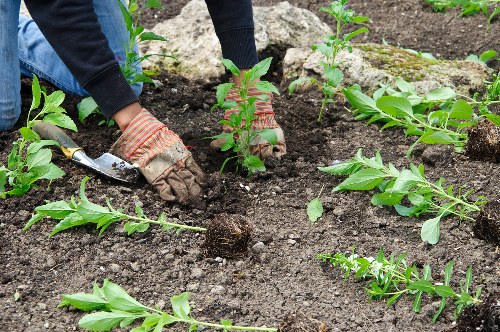
Gardening offers numerous mental health benefits, providing a therapeutic escape from the stresses of daily life. Engaging with nature, nurturing plants, and witnessing growth can contribute to improved mood and reduced anxiety.
The physical activity involved in gardening promotes physical health, while the focus required for gardening tasks enhances mindfulness and concentration. Spending time outdoors in your garden allows you to connect with nature, fostering a sense of peace and tranquility.
Creating a personal sanctuary through your garden can be a source of joy and fulfillment. Designing spaces that reflect your personality and preferences can make your garden a place of relaxation and inspiration.
Additionally, the responsibility of caring for plants instills a sense of purpose and accomplishment, boosting self-esteem and overall well-being.
By incorporating gardening into your routine, you can cultivate not only a beautiful garden but also a healthier and happier lifestyle.
Innovative Gardening Techniques in Freezywater
Embracing innovative gardening techniques can enhance your gardening efficiency and success in Freezywater. Here are some modern methods to consider:
- Vertical Gardening: Maximizes space by growing plants upwards, ideal for small gardens or limited spaces.
- Hydroponics: Soil-less gardening that uses nutrient-rich water solutions, allowing for controlled and efficient plant growth.
- Square Foot Gardening: A method that organizes garden space into manageable sections, optimizing productivity and reducing waste.
- Permaculture: Designing your garden based on natural ecosystems, promoting sustainability and self-sufficiency.
- Smart Gardening: Utilizing technology such as automated irrigation systems, soil sensors, and gardening apps to monitor and manage your garden effectively.
Incorporating these techniques can make your gardening practices more efficient, reduce resource consumption, and lead to healthier plants.
Experimenting with different methods can also add variety to your gardening experience, keeping it engaging and rewarding.
Local Services and Resources for Freezywater Gardeners
Residents of Freezywater have access to a variety of local services and resources that can support their gardening endeavors. From specialized nurseries to expert advice, these resources are invaluable for maintaining a successful garden.
Local nurseries offer a wide selection of plants, seeds, and gardening supplies tailored to the region's specific needs. Knowledgeable staff can provide guidance on plant selection, care, and troubleshooting common gardening issues.
Community centers and libraries often host gardening workshops, providing opportunities for continuous learning and skill development. These events can cover topics like composting, pest management, and seasonal planting strategies.
Online forums and social media groups dedicated to Freezywater gardening can also be excellent sources of support and inspiration. Engaging with other local gardeners allows you to share experiences, exchange tips, and collaborate on projects.
Additionally, local government initiatives may offer programs aimed at promoting green spaces and sustainable gardening practices, providing incentives and resources for community gardening projects.
Leveraging these local services and resources can enhance your gardening knowledge and ensure a thriving garden year after year.
Gardening Challenges and Solutions in Freezywater
Gardening in Freezywater comes with its own set of challenges, from unpredictable weather to soil issues. However, with the right strategies, these obstacles can be effectively managed.
Unpredictable Weather: Sudden changes in weather, such as unexpected frosts or heavy rains, can impact your plants. To mitigate these effects, use protective covers like frost cloths during cold spells and implement proper drainage systems to handle excessive rainfall.
Soil Compaction: Heavy foot traffic or machinery can compact the soil, restricting root growth and water infiltration. Prevent soil compaction by using raised beds, pathways, and minimizing foot traffic in planting areas.
Pest Infestations: Persistent pests can devastate your garden. Employ integrated pest management (IPM) techniques, combining biological controls, cultural practices, and mechanical barriers to manage pest populations sustainably.
Weed Control: Weeds compete with your plants for nutrients and water. Regular weeding, mulching, and using landscape fabric can help keep weed growth under control.
Resource Limitations: Limited water or space can constrain your gardening projects. Implementing water-efficient techniques, such as drip irrigation and rainwater harvesting, and optimizing space through vertical gardening or container gardening can address these limitations.
Gardener Freezywater's Vision for the Future
The future of gardening in Freezywater is bright, with an increasing focus on sustainability, innovation, and community engagement. Gardener Freezywater envisions a thriving network of gardens that not only beautify the area but also contribute to environmental health and community well-being.
Emphasizing sustainable practices, the community aims to reduce its environmental footprint through organic gardening, water conservation, and the promotion of native plant species. Educational programs and workshops will continue to empower gardeners with the knowledge and tools needed to implement these practices effectively.
Innovation in gardening techniques and technology will play a significant role in shaping the future landscape. Smart gardening solutions, such as automated irrigation systems and soil monitoring devices, will make gardening more efficient and accessible to a wider audience.
Community-driven initiatives, such as urban gardens and green spaces, will foster social connections and provide communal areas for relaxation and recreation. These projects will enhance the local aesthetic and offer residents a place to connect with nature and each other.
Ultimately, Gardener Freezywater strives to create a vibrant and resilient gardening community that supports both individual gardeners and the broader environment, ensuring a legacy of green spaces for future generations.